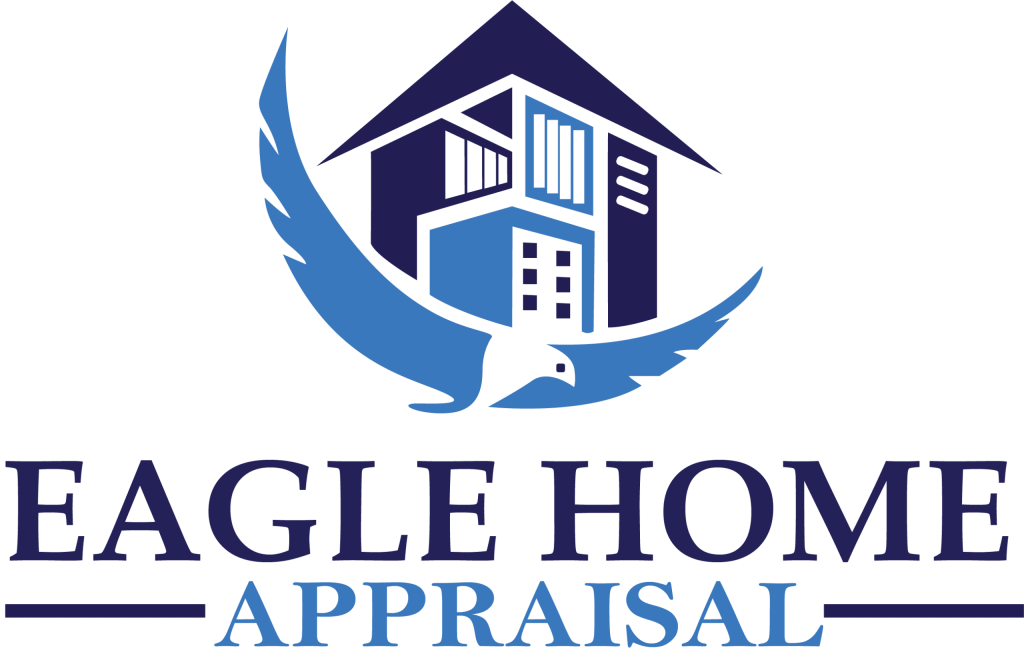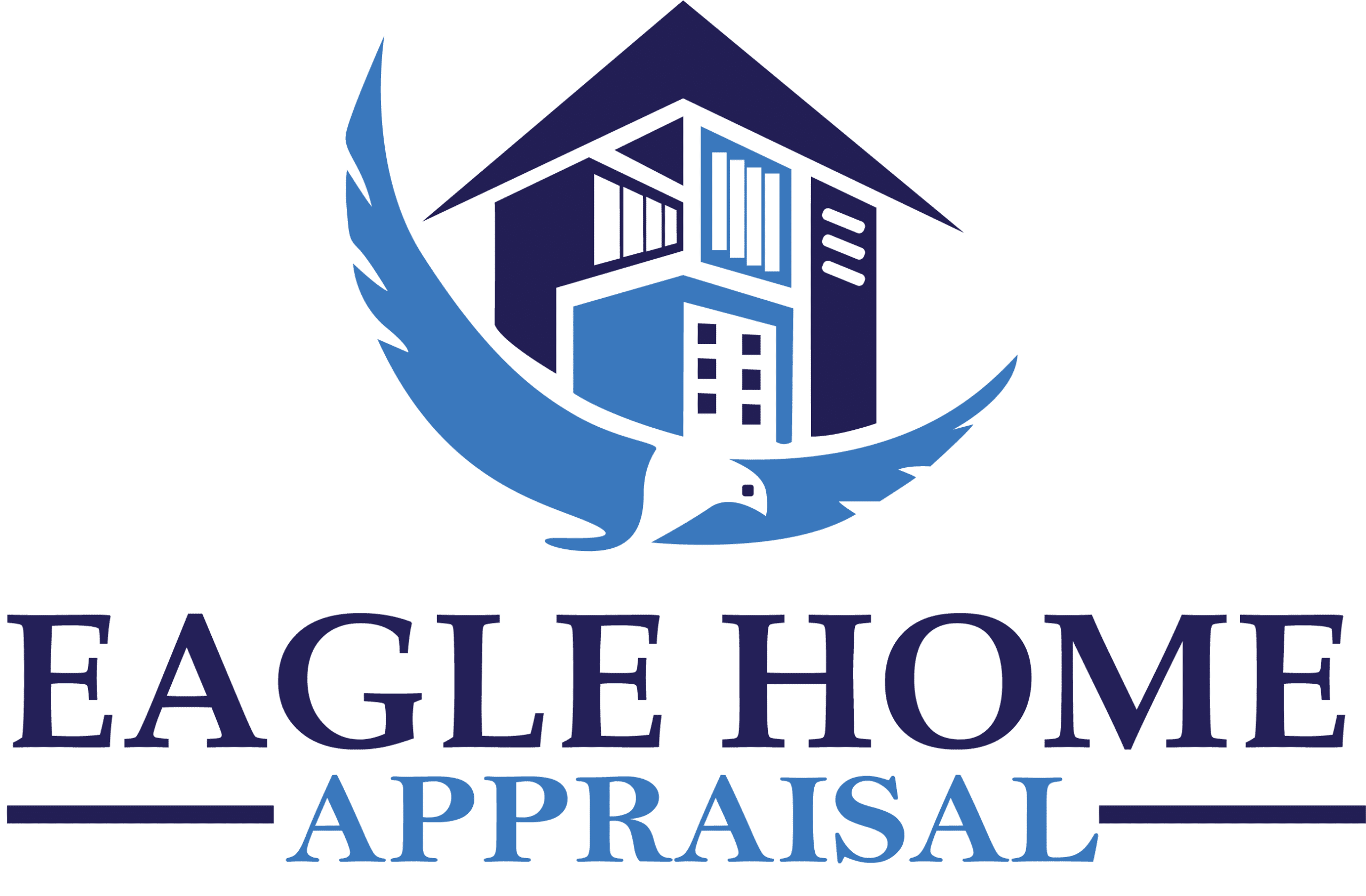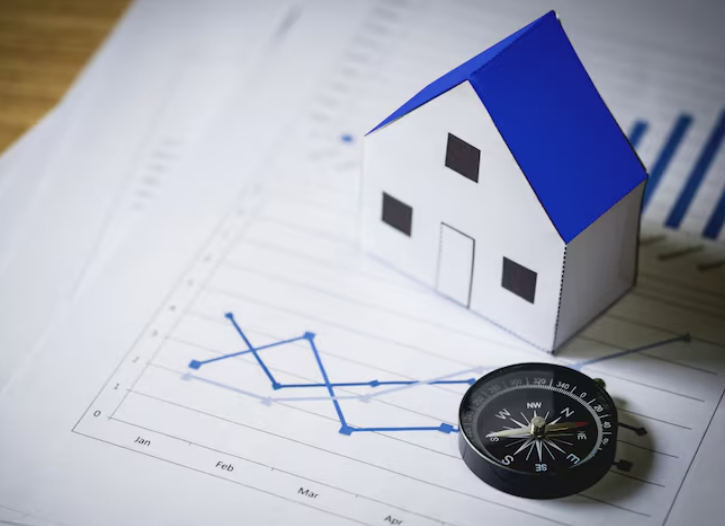How Much Does a Home Appraisal Cost in Gilbert, AZ?
 In the bustling real estate market of Gilbert, AZ, where property values have steadily climbed and neighborhoods flourish with new amenities and developments, the subject of home appraisals rises to the forefront of every major residential transaction. Whether you’re buying, selling, refinancing, or managing an estate, a home appraisal forms the bridge between your property and its true market value—a figure that can dictate loan amounts, sales negotiations, and even the timing of your next big move.
In the bustling real estate market of Gilbert, AZ, where property values have steadily climbed and neighborhoods flourish with new amenities and developments, the subject of home appraisals rises to the forefront of every major residential transaction. Whether you’re buying, selling, refinancing, or managing an estate, a home appraisal forms the bridge between your property and its true market value—a figure that can dictate loan amounts, sales negotiations, and even the timing of your next big move.
For most homeowners and buyers in Gilbert, the question isn’t just “what is my home worth?” but “what will it cost to have this determined by a trusted expert?” Understanding home appraisal costs in Gilbert involves more than glancing at an average figure. It means knowing the process, the factors impacting pricing, the benefits to you, and what you can do to optimize the experience for your situation.
In this comprehensive guide, we’re breaking down everything you need to know—from what a home appraisal actually entails to the detailed cost breakdowns you can expect in 2025 and beyond. You’ll learn how appraisal fees are set, what variables can increase or decrease the cost, how different property types and purposes affect pricing, and the simple strategies to get ready and maximize your value. We’ll also discuss why working with a local Gilbert specialist, like Eagle Home Appraisal Gilbert, makes all the difference.
If you want to approach your appraisal with clarity, confidence, and solid expectations, this guide is for you. Let’s begin by unpacking what a home appraisal really is—and why it’s indispensable in Gilbert, AZ.
What Is a Home Appraisal, and Why Do You Need One?
Before dissecting the costs, it’s essential to grasp what a home appraisal entails and why it is so vital in Gilbert’s real estate landscape. A home appraisal is an impartial, comprehensive evaluation of a property’s current market value conducted by a licensed or certified professional appraiser. This value becomes the cornerstone of almost every real estate transaction or financial decision involving your property.
What Does an Appraiser Do?
When an appraiser evaluates a home in Gilbert, they don’t just walk through and take a few notes. They analyze the size, condition, improvements, location, and numerous other variables, comparing them against recent sales of similar properties (known as “comps”) in the immediate area. They’ll also account for market trends, the condition of the neighborhood, and any unique features the home possesses.
Why Is an Appraisal Required?
For Buyers and Sellers:
In home sales, an appraisal acts as a safeguard against overpaying or underselling. Sellers can use an appraisal before listing to set a competitive, realistic price based on current data, while buyers (and their lenders) rely on the appraised value to ensure they’re not borrowing more than what the home is actually worth. In Gilbert, where micro-markets and new construction abound, just relying on online estimates can be costly.
For Lenders:
Lenders, whether banks or mortgage companies, require an appraisal before finalizing a home loan. They need to be confident that the property can serve as sufficient collateral for the loan, protecting themselves from the risk of lending more than the asset is worth.
Other Key Situations:
- Refinancing: Homeowners seeking to refinance need an updated appraisal to establish current value, affecting loan terms and eligibility.
- Divorce or Estate Settlements: Whenever assets are divided, a current and impartial appraisal ensures the division is fair.
- Tax Appeals: If you believe your property taxes are based on an overvaluation, an appraisal can justify a reassessment.
The Unique Context in Gilbert, AZ
Gilbert is one of Arizona’s most dynamic markets, featuring everything from historic properties to sprawling new developments. The differences between neighborhoods, amenities, school districts, and home styles can be dramatic—even within just a few blocks. Only a professional, locally focused appraiser can accurately interpret these nuances and deliver a value you and all parties can trust.
Bottom Line
A home appraisal is not just a box to check. It’s a powerful tool that protects your investment, provides transparency in negotiations, and ensures both buyers and sellers make enlightened, data-driven decisions. In the following sections, we’ll explore exactly what you can expect to pay for this crucial service in Gilbert, and how to make the most of every dollar spent.
Average Home Appraisal Costs in Gilbert, AZ
When seeking an appraisal in Gilbert, AZ, cost is often the first concern. While national averages offer a baseline, Gilbert’s unique real estate features require localized figures. In 2025, the typical home appraisal cost in Gilbert will generally range between $450 and $625 for a standard single-family home. However, that number can swing up or down depending on your property’s size, layout, and specifics.
Typical Figures for Gilbert Homeowners
- Standard Single-Family Homes (<3,000 sq. ft.): $450–$625 is the common range for an ordinary inspection and appraisal report.
- Large/Luxury Homes, Unique Properties: For homes exceeding 3,000 square feet, custom high-end builds, or those possessing distinctive features (such as extensive land parcels, pools, or casitas), the cost often jumps to $700, $1,000, or even more.
- Condominiums/Small Townhouses: Smaller homes and condos usually fall toward the lower end ($350–$600).
- Multi-family (2–4 units): Expect quotes ranging from $800 to $1,200 depending on complexity.
What Sets Gilbert Appraisals Apart?
Gilbert’s housing market sets itself apart by offering everything from starter condos to sprawling luxury estates. This variety means appraisers in the area need deep local expertise, and their fees often reflect the additional research and due diligence involved in fairly evaluating properties in areas with rapid appreciation, brand-new amenities, and constantly shifting comps. Appraisers are in high demand, especially during active buying seasons, sometimes leading to competitive pricing or surcharges for rush jobs.
Payment Timing and Structure
Most appraisers or appraisal management companies (AMCs) in Gilbert require payment upfront, especially for non-lender-ordered appraisals (such as those for estate planning or divorce). This policy helps ensure timely, unbiased work, and protects both parties.
How to Get the Best Value
When comparing appraisal quotes:
- Check exactly what’s included in the quoted price (report type, turnaround time, follow-up services).
- Ask about experience appraising in your specific Gilbert neighborhood.
- Ensure your selected appraiser holds current certification and has strong local referrals.
What Influences Appraisal Costs?
The range of appraisal fees in Gilbert leaves many homeowners wondering: What determines how much I’ll pay? The reality is that several key factors converge to set your appraisal bill. Understanding these can help you manage costs and select the right professional for your needs.
Property Size and Complexity
One of the most impactful factors is the size and complexity of your home:
- Smaller/Standard Homes: Fast and straightforward for appraisers, these typically fall at the lower end of the range.
- Larger Estates: Homes with more than 3,000 sq. ft., extra bedrooms and bathrooms, finished basements, or multiple stories require more time to evaluate.
- Unique Features: Homes with unorthodox layouts, custom builds, extensive renovations, pools, guesthouses, horse property, or significant acreage all demand additional analysis and market research.
Location Matters
Gilbert’s housing landscape covers everything from new subdivisions to established historic districts. Homes in less accessible or unique neighborhoods, or those far from appraisers’ offices, might incur travel surcharges or higher base rates. Properties at the fringes or in high-demand parts of Gilbert—close to amenities, highways, or sought-after schools—may also need more precise comp analysis, impacting cost.
Condition of the Home
A well-maintained property is easier to appraise. Homes with obvious deferred maintenance (such as broken windows, water damage, or non-functioning systems) require appraisers to account for repair costs in their value calculations. These extra steps extend the work involved, sometimes resulting in higher fees.
Purpose of the Appraisal
Different reasons for appraisals can affect both the scope and the price:
- Lender/Mortgage Appraisals: Standard format, slightly less customization, usually set by lender contracts.
- Divorce/Legal/Tax Appraisals: Often require additional forms, legal affidavits, narrative explanations, and even court testimony, all of which add to the base rate.
- Pre-Listing or FSBO (For Sale By Owner): Optional but often more detailed at the homeowner’s request.
Turnaround Time
If you need the report quickly, expect to pay significantly more. Standard appraisals usually take 3–7 business days. A rush order—ready in 24 to 48 hours—can increase your cost by 50–75% or more.
Appraiser Qualifications
Highly experienced, licensed, and locally specialized appraisers may charge premium fees. In return, you benefit from accuracy, credibility (especially for legal/estate/divorce purposes), and often faster, more professional service.
Additional Complexity Premiums
- Multiple Structures: Outbuildings, barns, guest houses, separate garages.
- Land Value Issues: Homes with very large lots or in developing areas.
- Income-Producing Property: Rentals or Airbnbs require a rental premium analysis.
Understanding these influences doesn’t just clarify why costs vary—it gives you a foundation for selecting the right appraiser and preparing your property to minimize unnecessary premiums. Next, let’s break down how appraisal types (and what’s required for each) affect final pricing.
Different Types of Appraisals and Their Associated Fees
No two appraisals are exactly alike. The fee you’ll encounter depends greatly on the type of appraisal service you require. In Gilbert, AZ, these can range from straightforward lender-mandated appraisals to highly detailed reports for specialized purposes. Here’s a closer look at what you can expect from each of the most common types:
Standard Full Residential Appraisal
Best For: Most mortgage loans, purchases, and refinances.
Includes: Full onsite visit, physical inspection, comprehensive report.
Cost: $450–$625 (more for large/complex homes).
This is the “classic” appraisal required by most lenders. The appraiser visits your property, takes measurements, notes features and upgrades, photographs the interior and exterior, and compares your property with recent sales of similar homes in the area. The resulting report follows the Uniform Residential Appraisal Report (URAR) format, ensuring consistency and compliance.
Condominium Appraisal
Best For: Condo loans or refinances, pre-listing assessments.
Includes: Specialized analysis of HOA, amenities, and unit-specific comps.
Cost: $350–$600.
Condominiums require a different approach, as value is impacted by homeowner association fees, amenities (like pools or gyms), and shared structures. Appraisals are generally a bit less expensive unless the complex or unit offers significant unique features.
Luxury, Unique, or Large Homes
Best For: Properties with over 3,000 sq. ft., extensive upgrades, or large parcels.
Includes: Detailed comparative/trend analysis, often more onsite hours.
Cost: $700–$1,500+.
High-value estates require much more work from appraisers, who must analyze custom features, builder quality, and potentially cross-reference comps across multiple neighborhoods. The higher fee reflects the expertise and additional effort involved.
Multi-Family Appraisals (2–4 Units)
Best For: Duplexes, triplexes, fourplexes, or house-hack investments.
Includes: Evaluation of rental schedules, income approach, and comps.
Cost: $800–$1,200.
These appraisals add complexity not just in square footage, but in the need to forecast or verify rents and account for income-generating potential.
Desk/Review/Hybrid Appraisals
Best For: Lender/internal value checks, refinancing, or second opinions.
Includes: No onsite visit; uses public records, MLS, and photos.
Cost: $350–$700.
No walkthrough is conducted, which lowers the price, but also limits the report’s accuracy, especially for homes with significant updates or differences from public records.
Land or Vacant Lot Appraisals
Best For: Lots for new construction or investment.
Includes: Comp analysis of raw land sales, utility availability, zoning.
Cost: Call for quote; typically $700+.
More research is required as comps are scarce and factors like utilities, zoning, and nearby developments affect valuation.
Add-On Fees
- Rush Service: Add $100–$250 (or 50–75%).
- Re-Inspection/Recertification: $125–$200.
- Court/Legal Testimony: $150–$300/hour, if required.
Appraisal types determine not only the process and format but the time and expertise required. Always clarify which you need, and verify exactly what’s included in any quote to avoid hidden fees. In the next section, we explain how the full appraisal journey unfolds in Gilbert, Arizona.
The Home Appraisal Process in Gilbert, AZ Explained
Understanding the appraisal process in detail can help both buyers and sellers in Gilbert manage expectations, prepare appropriately, and foster a smoother real estate or loan experience. Here’s a step-by-step breakdown of what actually happens during a home appraisal:
1. Appraisal Ordered
The process begins when an appraisal is requested. In most residential purchases, the lender (bank, mortgage broker, or credit union) orders the appraisal after a purchase contract is signed. If you’re refinancing, dividing assets, or seeking a pre-listing evaluation, you can order it directly from a licensed appraiser or a reputable local firm like Eagle Home Appraisal Gilbert.
2. Scheduling and Prep
The appraiser contacts the homeowner or listing agent to schedule an onsite inspection. They’ll confirm basic property details and may ask if there have been recent upgrades.
3. Onsite Inspection
During the inspection (which may last 30–90 minutes for standard homes or several hours for larger properties), the appraiser will:
- Measure the home’s exterior and interior to verify square footage.
- Take photographs of every room, the exterior, key features, and mechanical systems.
- Document recent upgrades, amenities (like pools or solar panels), and the overall property condition.
- Assess the land size, landscaping, and any outbuildings or special features.
Note: Appraisers are impartial—they’re not looking to ding you, but must objectively record all aspects of the property for accurate comparison.
4. Neighborhood and Market Research
After the physical inspection, the appraiser heads back to the office. Here, they pull recent comparable property sales (comps) from Gilbert’s Multiple Listing Service (MLS). These must be as similar as possible in size, age, type, location, and features—and ideally within the same neighborhood or school district.
5. Valuation Analysis
Using detailed software and their expertise, the appraiser analyzes all data. Adjustments are made for any differences between your home and the comps (for instance, adding value for recent kitchen upgrades or subtracting for a lack of garage).
6. Report Compilation
The appraiser prepares a full written report—usually 20+ pages long—detailing methodologies, observations, photos, and the final “as-is” fair market value of the home.
7. Delivery & Review
The report is sent to whoever ordered the appraisal—usually the lender (for loans or refinancing), or directly to you (for legal or personal purposes). For transactions, the closing process can only proceed after this report is received and reviewed.
8. Potential Follow-Ups
If certain items weren’t accessible, or repairs were required prior to closing, a re-inspection may be scheduled for an additional fee.
How Long Will This Take?
Standard turnaround is 3–7 business days from the onsite visit. Rush options (24–48 hours) are available for a premium.
Understanding this process prepares you to facilitate a successful, efficient appraisal—whether for purchase, refinance, or legal matters. Next, let’s break down who pays for the appraisal—and when.
Section 6: Who Pays for the Appraisal?
One of the most commonly asked questions by both buyers and sellers in Gilbert is: “Who actually pays for the home appraisal?” The answer varies by transaction type, but having clarity on this issue avoids confusion—and sometimes awkward financial surprises.
Home Purchase Transactions
In nearly all standard real estate purchase transactions in Gilbert, the buyer pays the appraisal fee. Even though the lender formally orders the appraisal (to maintain the process’s independence), the cost is usually listed as part of the buyer’s closing costs and may be required upfront.
- Timing: Payment is typically due before the appraiser visits, or at the time of service.
- Why buyers pay: Lenders require the appraisal, but ultimately it’s the buyer who must ensure the home’s value supports the loan amount. This is in their own best interest—no one wants to overpay!
Refinances
When existing homeowners refinance a mortgage, the homeowner pays for the appraisal. The lender still orders the service, but because the primary beneficiary is the borrower, the fee is an out-of-pocket cost—sometimes considered a cost of doing business for securing potentially lower rates or improved terms.
Divorce, Estate, and Legal Appraisals
Legal proceedings such as divorce or estate settlements require neutral, third-party valuation.
- Divorce: The fee is typically paid by the party requesting the appraisal. In contested cases, both sides may split the cost or order their own independent appraisals.
- Estates: Executors or heirs usually pay the fee, sometimes using estate funds.
- Tax Appeals: The homeowner or their legal representative covers the cost.
Pre-Listing or FSBO Appraisals
If a seller obtains an appraisal before listing (to set their price or support a for-sale-by-owner transaction), that seller pays for service, up front.
Payment Method and Receipt
Most appraisers and AMCs accept major credit cards, checks, and electronic transfers. Payment is often due prior to the release of the appraisal report. You’ll receive a receipt and, with reputable firms, a full breakdown of charges.
Exceptions
- Negotiable Terms: In rare cases, as part of negotiations, parties might agree for the seller to cover the appraisal cost—often as a credit at closing.
- “No Upfront” Lenders: Some big banks wrap the cost into the overall mortgage, but this is relatively rare in Arizona; always read the fine print.
In Gilbert, buyers or requesting parties usually pay for the appraisal. Knowing this, budgeting accordingly, and understanding the expected payment timing is essential for a seamless transaction—which brings us next to the potential additional and hidden costs to watch for.
Additional and Hidden Fees to Consider
While the base price of an appraisal is straightforward, certain circumstances can result in extra costs that homeowners and buyers in Gilbert should be aware of. Here, we detail the most common additional and hidden fees associated with home appraisal services, so you can plan ahead and avoid surprises.
Rush or Expedited Service
When a quick report turnaround is needed—say, within 24 or 48 hours—a significant surcharge will almost always apply. Expect expedited fees to add $100–$250 (or 50–75%) to the standard cost. Fast-tracked appraisals require the appraiser to prioritize your appointment, often working overtime or rescheduling other clients.
Travel and Mileage Surcharges
Gilbert is a large area with both densely populated neighborhoods and more rural zones toward the city’s periphery. If your home is located far from the appraiser’s usual service routes, a mileage fee may compound the base price. This typically only applies to homes outside main residential zones or in hard-to-access developments.
Complexity Premiums
Homes that are out of the ordinary—unconventional builds, luxury finishes, mixed-use (e.g., combined home-office or attached income property), extensive land parcels—may warrant a complexity surcharge. These fees compensate for the additional analysis and research required to find truly comparable sales or adjust market data.
Re-Inspection Fees
After an initial appraisal, lenders or agencies may require repairs before loan approval. Once these are complete, the appraiser must return to verify work was finished. Re-inspection fees typically run $125–$200, depending on travel time and scope of review.
Report Revision or Additional Copies
If you request revisions beyond normal edits (such as new comps, explanations, or supplemental documents), some appraisers charge a fee. Extra physical copies of the full report might also come with a nominal cost, though digital delivery is now standard.
Cancellation and No-Show Penalties
If you cancel after the appraiser has begun work (especially if the onsite inspection has occurred), you’ll likely be responsible for at least a portion—and often the full sum—of the agreed fee. Similarly, failing to provide access as scheduled can result in rescheduling fees.
Legal, Court, or Testimony Services
If your appraisal is used in litigation or a contested estate/divorce and the appraiser is required to testify or produce court documents, hourly expert-witness or documentation fees will apply. These can range from $150 to $300 per hour.
Desk/Hybrid Report Add-Ons
Some lenders may offer a lower-cost, no-inspection “hybrid” or desk review option, but if you later need a full report, you pay the balance to upgrade.
How to Manage These Fees
- Clarify All Terms Up Front: Ask for an itemized quote in writing before the visit.
- Be Ready for Inspection: Ensure the appraiser has full access on the first visit to avoid re-inspection fees.
- Don’t Rush Unless Necessary: Schedule early to avoid paying for expedited service.
Reputable local firms, such as Eagle Home Appraisal Gilbert, will review fee structures with you thoroughly and provide clear, up-front estimates—no surprises. In the next section, we’ll share how you can prepare your home to facilitate the smoothest, most efficient appraisal possible.
How to Prepare for a Home Appraisal (and Maximize Your Value)
A successful home appraisal in Gilbert doesn’t just depend on your chosen professional—it also hinges on how prepared you are. By taking a proactive approach, you not only help the appraiser work efficiently, but you may also help your home present its best value. Here’s how to get ready:
Clean and Tidy Up
While appraisers aren’t grading cleanliness, a clean and organized home enables the professional to note all features and upgrades easily. Tidy up both inside and outside—declutter countertops, clear piles from corners, and ensure the yard and walkways are neat.
Document Recent Upgrades and Repairs
Create a comprehensive list of all upgrades, improvements, and repairs made in the past 5–10 years. Attach copies of permits and receipts if possible. Even upgrades that don’t seem significant (like a new hot water heater, HVAC, or energy-efficient windows) can influence the final value calculation. Notate dates and costs where available.
Ensure Full Access
The appraiser will need access to all rooms, including:
- Garage
- Basements and attics
- Outbuildings
- Sheds
- Crawl spaces
Clear a pathway to utility panels, water heaters, and appliances, and ensure all doors are unlocked or keys are available.
Highlight Unique Features
If your home offers something special—a new pool, built-in outdoor kitchen, custom walk-in closet, or smart home system—point these out. Features that set your home apart add to its appeal and potential value.
Safety and Code Compliance
Check that smoke detectors, carbon monoxide alarms, and security systems are up to date and working. Not only is this often mandated by lenders, but appraisers must note safety features in their reports—and deficiencies can lower perceived value.
Landscaping and Curb Appeal
First impressions matter. Neat landscaping, fresh paint touch-ups, or addressing minor exterior issues (loose railings, missing fence boards) signal that your property has been well cared for and reduces concerns about deferred maintenance.
Prepare Documentation
Have copies of:
- Previous appraisals
- Recent tax assessments
- Building plans or surveys
- HOA documents if you’re in a managed community
These help the appraiser cross-verify essential details and support accurate analysis.
Be Available for Questions
While you don’t have to hover, being present (or reachable) during the visit can help quickly answer any questions about features or upgrades, allowing the appraiser to note every detail.
Avoid These Mistakes
- Failing to disclose recent repairs or improvements (or damages).
- Limiting access to any part of the home.
- Attempting to “stage” damage or hide defects, which can backfire.
A little preparation can result in a smoother, faster appraisal process and, potentially, a higher assessed value—vital for buyers, sellers, and anyone refinancing. Next, we’ll explore how your home’s appraised value can impact your entire real estate transaction.
How Home Appraisals Impact Your Real Estate Transaction
The home appraisal is much more than a formality—it’s the lynchpin of financing, negotiation, and planning in Gilbert’s real estate market. Here’s why the appraisal matters at every step of your transaction:
Securing Financing
Lenders rely on appraised values to determine how much they’re willing to loan for your property. If the appraisal comes in at or above the contract price, the transaction should move forward smoothly. However, if it falls short, several outcomes are possible:
- Buyer may need a larger down payment: If you’re buying a home and the appraisal is lower than your purchase price, your loan will be based on the appraised value. You’ll need to cover the shortfall with extra funds, renegotiate the price, or in some cases, cancel the purchase.
- Refinancing hurdles: If you’re refinancing, a low appraisal can block your ability to secure better rates, extract home equity, or meet loan-to-value requirements.
Influencing Negotiations
The appraisal offers a neutral, professional opinion that can drive negotiations between buyers and sellers:
- If an appraisal is high, sellers can justify their asking price, or even attract higher offers.
- If it’s low, buyers have room to request price reductions or concessions.
Affecting Timing and Contingencies
Most real estate contracts in Gilbert include an “appraisal contingency”—a clause allowing buyers and sellers to renegotiate or walk away if appraised value isn’t satisfactory. Appraisals that come in late, or at controversial values, can delay or derail closings, resulting in lost time and money.
Divorce and Estate Proceedings
Courts and attorneys rely on accurate, impartial appraisals to ensure assets are divided fairly during divorce or estate settlements. Disputed or inflated values can lead to increased legal fees, court appearances, and emotionally charged disagreement.
Taxation Implications
Assessed values for property taxes are separate from appraised market values, but if you believe your tax valuation is unfairly high, a current appraisal offers ammunition for appeal and potential savings.
For FSBOs and Investors
For-sale-by-owner sellers use appraisals to set prices confidently, preventing costly underpricing or protracted, overpriced listings. Investors rely on hard appraisals to secure financing, validate property values, and plan future renovations or sales.
When an Appraisal Falls Short
Low appraisals aren’t the end of the road. Buyers, sellers, and agents in Gilbert can:
- Dispute the report (with new comp data)
- Obtain a second appraisal
- Negotiate repairs or contract price
- Adjust financing strategies
The Local Impact in Gilbert
Gilbert’s rapidly growing real estate market makes timely and accurate appraisals even more critical. Prices can shift quickly, and new construction or upgraded amenities may affect neighborhood values from quarter to quarter.
The home appraisal is a “make or break” moment in most transactions. By understanding its impact, you can prepare for all outcomes, negotiate wisely, and close the deal with confidence. Now, we’ll turn to why your choice of appraiser—especially one local to Gilbert—can make all the difference.
Section 10: Why Choose a Local Gilbert Appraiser?
Selecting the right appraiser is vital, and in a city as nuanced and rapidly evolving as Gilbert, AZ, local expertise holds unmatched value. Here’s why working with a local specialist, such as Eagle Home Appraisal Gilbert, is one of the smartest choices you can make:
Targeted Local Knowledge
A local appraiser brings deep insight into:
- Neighborhood trends and micro-markets
- School district impacts on property value
- Recent and upcoming developments
- Unique features of Gilbert’s new and established communities
Remote or national firms may miss key nuances—like the influence of nearby parks, the reputation of a particular subdivision, or the subtle differences between adjacent school zones.
Faster, More Reliable Service
Local appraisers:
- Offer quicker scheduling and turnarounds due to proximity
- Are less likely to miss appointments or delay reports (no ‘out-of-area’ travel issues)
- Know which lenders, agents, and attorneys operate in the Gilbert market
In a time-sensitive transaction, those days saved can make a huge difference—whether you’re buying, selling, or refinancing.
Accurate, Defensible Valuations
Gilbert’s property values fluctuate with construction, economic shifts, and seasonal demand. Local appraisers are “in the trenches,” seeing how prices are moving week to week, and can justify their findings with real-time comp data. This makes their reports more trustworthy and less likely to be contested by lenders, lawyers, or opposing parties.
Navigating Special Property Types
From custom new builds to hobby farms, luxury townhomes to 55+ communities, Gilbert’s housing stock is diverse. Only a local expert can truly compare apples to apples, producing accurate and fair appraisals for even the most unusual properties.
Legal and Negotiation Support
In disputes, legal proceedings, or negotiations, a local appraiser can offer:
- Professional testimony, if needed, in local courts
- Supplemental research and documentation tailored to regional standards
- A reputation and credibility recognized by local agents, attorneys, and tax assessors
Strong Communication and Relationships
Working with a local firm means better service throughout, from your initial inquiry to post-appraisal follow-ups or report clarifications. Firms like Eagle Home Appraisal Gilbert prioritize responsive, accessible customer care—vital if complications arise or you need further guidance.
A locally based appraiser isn’t just a convenience—it’s a financial and strategic advantage. With greater accuracy, faster results, and deep Gilbert market knowledge, local firms ensure your appraisal is both a solid foundation for your transaction and a powerful bargaining chip at every stage. Now, let’s draw together everything you’ve learned for a roadmap to appraisal success.
Conclusion: Maximizing the Value of Your Gilbert Home Appraisal
Navigating the home appraisal process in Gilbert, AZ doesn’t have to be overwhelming or unpredictable. By understanding costs—which range from $450 to $625 for standard homes, with add-ons and specialty reports impacting total price—you’re already one step ahead in planning your next real estate move.
More importantly, being proactive pays dividends. From choosing the right type of appraisal and preparing your property, to selecting a local expert, every step you take ensures transparency, decreases the risk of costly re-dos or negotiations, and sets your transaction up for success. Remember that in Gilbert’s diverse and fast-evolving market, precision and local expertise count.
If you’re ready to move forward—whether buying, selling, refinancing, or simply safeguarding your investment—reach out to a reputable local firm like Eagle Home Appraisal Gilbert. With their neighborhood knowledge, attention to detail, and client-first approach, you’ll get a fair, defensible value for your home and the peace of mind to make your next big decision with confidence.
For questions, quotes, or to schedule your own personalized appraisal, contact Eagle Home Appraisal Gilbert today. The right value begins here!
Next Up: Wondering what to expect during the appraisal process? We break it down in “How long does a Gilbert home appraisal take?“
Divorce Appraisals
At Eagle Home Appraisal Gilbert, we specialize in providing expert divorce appraiser services, offering expert witness testimony when necessary.
Estate & Trust Appraisals
At Eagle Home Appraisal Gilbert, we offer a comprehensive range of professional estate appraisal services to facilitate estate and trust planning.
IRS & Tax Appraisals
At Eagle Home Appraisal Gilbert, we specialize in providing professional IRS tax appraisal services to minimize capital gains on inherited property.
Real Estate Appraisal
Eagle Home Appraisal is a group of independent fee appraisers committed to delivering competent, credible, and reliable appraisal reports.
Eagle Home Appraisal Services Near Me
Comprehensive Property Appraisals
Expert Witness Testimony
Fair Market Value Assessments
Rapid Turnaround Times
Customized Solutions
Contact Eagle Home Appraisal Today
For more information about our services, get in touch with Eagle Home Appraisal. Our team is dedicated to providing the best customer service, ensuring all your appraisal needs are met with professionalism and expertise. Contact us today to learn more about how we can assist you.
Get A Free Consultation

copyright @2025 all rights reserved | Privacy-policy





